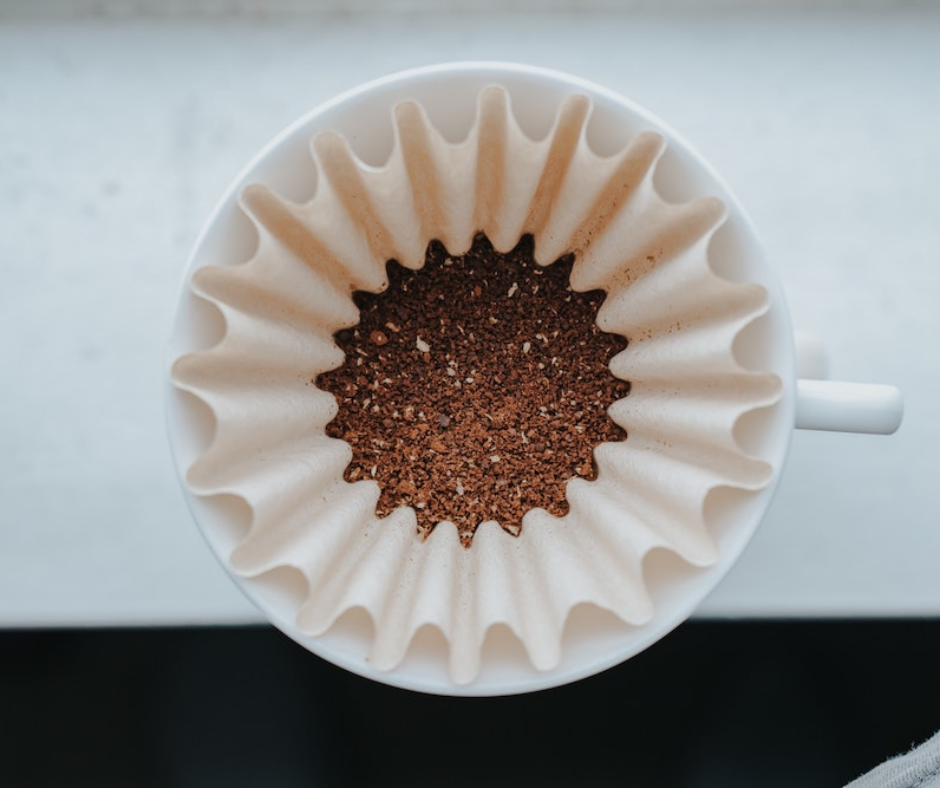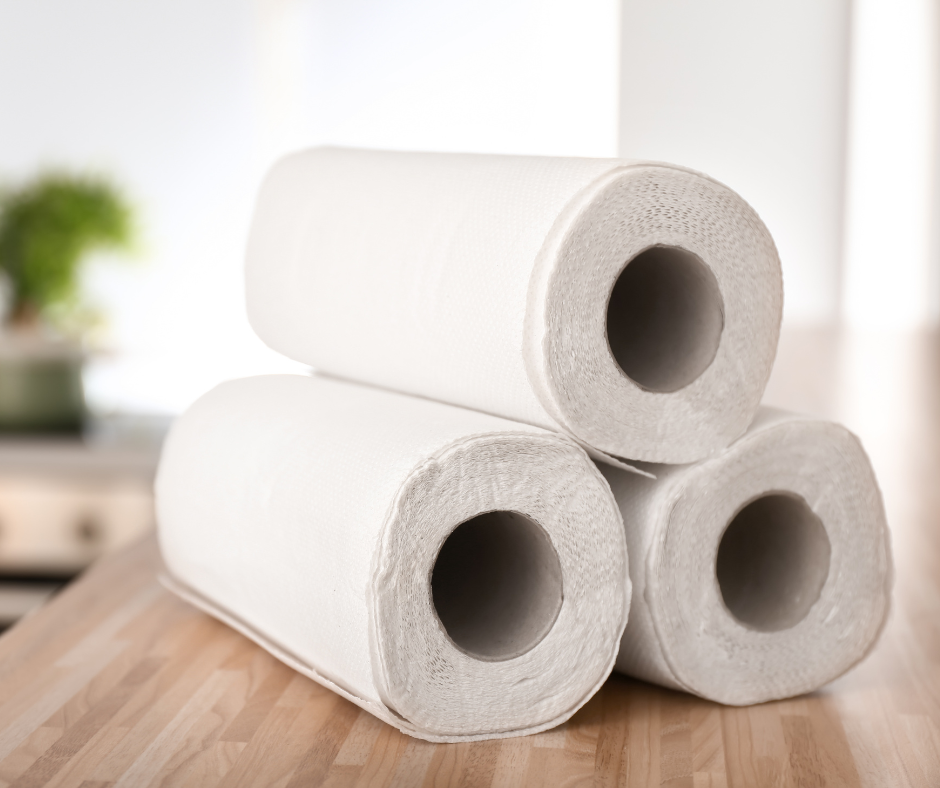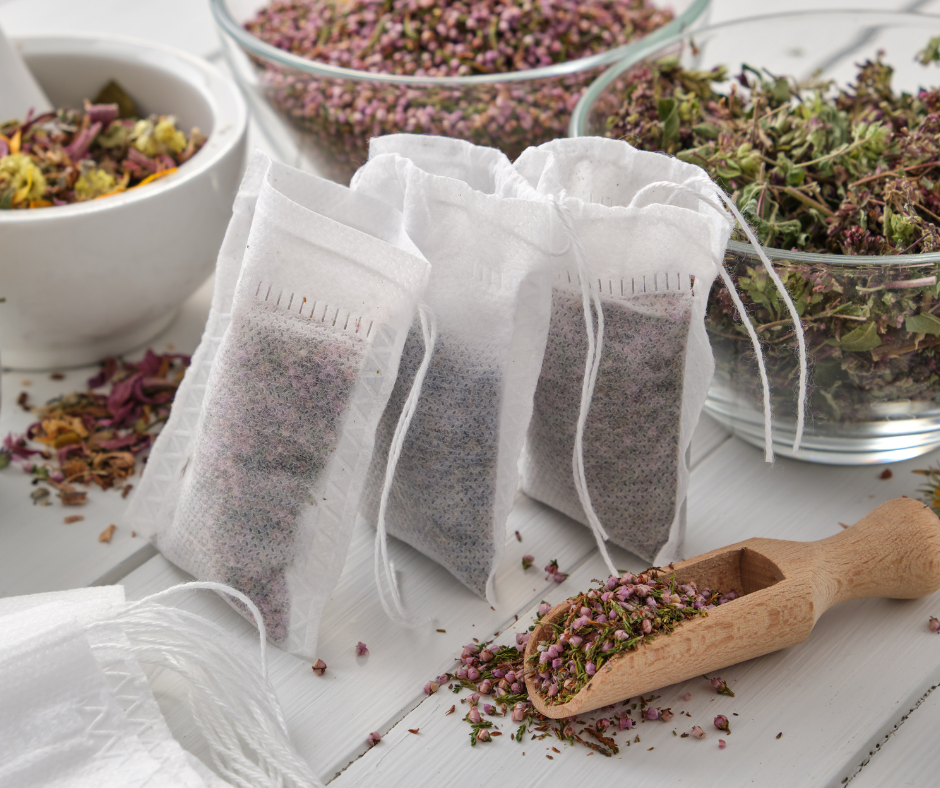Introduction
Coffee filters play a crucial role in brewing the perfect cup of coffee. They help to remove any impurities and sediment from the coffee grounds, resulting in a cleaner and smoother brew. But what happens when you run out of coffee filters? Fortunately, some Coffee Filter Substitute Options can still give you a delicious cup of coffee.
The Importance Of Coffee Filters In Brewing Coffee
Coffee filters are essential in various coffee brewing methods, such as drip machines, pour-over brewers, French presses, and Aeropress. They help to remove oils and sediment from the coffee grounds, ensuring a clean and flavorful cup of coffee. Different types of filters, such as paper, metal, and cloth filters, offer unique characteristics that can enhance or alter the taste profile of your coffee.
Common Situations When Coffee Filters Are Not Available
There are times when you may find yourself without coffee filters. Perhaps you ran out and forgot to restock, or you’re camping in the great outdoors with limited supplies. Whatever the situation, it’s good to know that alternative options are available. You can still enjoy a good cup of coffee without traditional filters, from using paper towels or a clean dish towel as makeshift filters to reusable tea bags or a fine mesh sieve.
No matter the circumstances, it’s always handy to have backup options when you run out of coffee filters. These alternatives may not provide the same results as a filter specifically for coffee brewing. However, they can still produce a satisfying cup that boosts much-needed morning caffeine. So don’t let a missing filter stop you from enjoying your favorite brew!
Paper Towels
Using Paper Towels As A Coffee Filter Substitute
If you are in a predicament where you’re out of coffee filters, don’t worry; you can use paper towels as a substitute. Paper towels, like coffee filters, are porous, so they can effectively catch the ground and allow the brewed coffee to drip through. Here’s how you can use a paper towel as a coffee filter:
- Lay a full-sized paper towel flat over a table.
- Fold the paper towel in half vertically.
- Fold the paper towel into another half to create a square shape.
- Use the open ends of the folded paper towel to create a pocket.
- Open the pocket and put it into your cup, facing upwards.
- Add your desired amount of coffee grounds inside the pocket.
- Fold the outer edges of the pocket to ensure the lid closes completely.
- Slowly pour hot water into the filter cup and let the coffee drip into the pot.
- Once brewed, remove the filter and enjoy your morning coffee.
Pros And Cons Of Using Paper Towels
While paper towels can serve as a convenient substitute for coffee filters, there are pros and cons to consider:
Pros:
- Paper towels are easily accessible in most households, making them a quick solution in emergencies.
- They are porous and can effectively catch coffee grounds.
Cons:
- Paper towels are not as sturdy as dedicated coffee filters, so they may not work for large batches of coffee.
- Using paper towels as filters contributes to increased waste compared to reusable or metal filters.
- Most paper towels are bleached, which raises concerns about potential chemical contaminants.
It’s important to note that while using paper towels as a temporary substitute is acceptable, it is not sustainable for long-term use. If sustainability is a priority, consider investing in reusable or metal coffee filters.
Cheesecloth
When it comes to Coffee Filter Substitute Options, one option that often comes to mind is cheesecloth. Cheesecloth is a versatile material commonly used in the kitchen for straining and filtering. It is made from 100% cotton and has a loose, gauze-like weave that allows liquids to pass through while capturing solids.
Using Cheesecloth As A Coffee Filter Substitute
To use cheesecloth as a substitute, place it over your coffee mug or carafe and secure it with a rubber band or string. Then, carefully pour your brewed coffee through the cheesecloth, allowing it to strain out any grounds or sediment.
Pros And Cons Of Using Cheesecloth
Using cheesecloth as a coffee filter substitute has its advantages and disadvantages. Here are some pros and cons to consider:
Pros:
- Cheesecloth is reusable, making it a more sustainable option compared to disposable paper filters.
- It allows oils and flavors from the coffee to pass through, resulting in a fuller-bodied cup of coffee.
- Cheesecloth is readily available and affordable.
Cons:
- The loose weave of cheesecloth may still allow some fine sediment to pass through, resulting in slightly cloudy coffee.
- Cheesecloth requires proper cleaning and maintenance after each use to prevent bacterial growth.
- It may not be as convenient as disposable paper filters for quick brewing or on-the-go situations.
In conclusion, while cheesecloth can be an effective substitute for coffee filters, it has its own pros and cons. Consider your preferences and brewing needs when deciding whether to use cheesecloth as a coffee filter substitute.
Fine Mesh Sieve
Fear not when you find yourself in a morning coffee dilemma without any coffee filters! Several alternatives can save the day, and one of them is a fine mesh sieve.
Using A Fine Mesh Sieve As A Coffee Filter Substitute
A fine mesh sieve is commonly used for straining hot liquids like tea, but it can also be a great tool for brewing coffee. Here’s how you can use it as a coffee filter substitute:
- Prepare your coffee by adding ground coffee to a pot or measuring cup.
- Heat water to the desired temperature (but not boiling) and pour it over the coffee grounds.
- Give it a good stir and let the coffee steep for a few minutes.
- Place the fine mesh sieve over your mug and carefully pour the brewed coffee.
- The sieve will catch the coffee grounds, leaving you with a smooth cup.
Pros And Cons Of Using A Fine Mesh Sieve
Using a fine mesh sieve as a coffee filter substitute has its advantages and disadvantages:
Pros:
- It’s a readily available tool that you may already have in your kitchen.
- It allows for easy brewing and straining of the coffee grounds.
- The brew won’t pick up any unwanted flavors you might get with paper filters.
Cons:
- The sieve may not catch all of the finest coffee solubles, resulting in some sediment at the bottom of your cup.
- Controlling the brew’s strength can be more difficult than using a traditional filter.
In summary, a fine mesh sieve can come to your rescue if you find yourself without any coffee filters. While it may not provide the same level of filtration as a paper filter, it is still a viable option for brewing your morning cup of joe. So go ahead, give it a try, and enjoy your coffee even without the filters!
Reusable Tea Bags
Using Reusable Tea Bags As A Coffee Filter Substitute
If you find yourself out of coffee filters, one alternative you may have in your kitchen is reusable tea bags. While they are typically used for steeping loose-leaf tea, they can also serve as a makeshift coffee filter substitute.
To use a reusable tea bag as a coffee filter, fill it with your desired coffee grounds and seal it up. Place the bag in your coffee mug or pot and pour hot water over it. Let it steep for a few minutes, just like tea. Once the desired strength is achieved, remove the bag and enjoy your freshly brewed coffee.
Pros And Cons Of Using Reusable Tea Bags
Using reusable tea bags as a coffee filter alternative has advantages and disadvantages. Here are some pros and cons to consider:
Pros:
- Cost-effective: Reusable tea bags can be more affordable than disposable coffee filters.
- Eco-friendly: Using reusable tea bags reduces waste and contributes to a more sustainable lifestyle.
- Versatile: Reusable tea bags can be used for both tea and coffee, providing flexibility in your beverage choices.
Cons:
- Size limitations: Depending on the size of the reusable tea bag, it may not accommodate larger amounts of coffee grounds for brewing multiple cups.
- Limited filtration: Tea bags are not designed specifically for filtering coffee grounds, so some sediment or residue may make its way into the brewed coffee.
- Cleanliness: It’s important to thoroughly clean and dry the reusable tea bags after each use to prevent any leftover flavors or odors from transferring to your next cup of coffee.
Using reusable tea bags as a coffee filter substitute can be a convenient and sustainable option in a pinch. Just be aware of their limitations and take proper care of the bags to ensure the best brewing experience.
French Press
If you’ve run out of coffee filters and need a substitute, one option to consider is using a French press. Here’s how you can use a French press as a coffee filter substitute and the pros and cons of doing so.
Using A French Press As A Coffee Filter Substitute
To use a French press as a coffee filter alternative, add your desired amount of coffee grounds into the French press and pour hot water over them. Allow the coffee to steep for a few minutes, then slowly press down the plunger to separate the grounds from the brewed coffee.
Pros And Cons Of Using A French Press
Using a French press as a substitute has its advantages and disadvantages:
Pros:
- Rich flavor: French press brewing allows for the full extraction of oils and flavors from the coffee grounds, resulting in a rich and robust cup of coffee.
- Control over brewing variables: With a French press, you control factors such as water temperature, brew time, and agitation, allowing you to customize your brew to your preference.
- Environmentally friendly: Using a reusable French press eliminates the need for disposable coffee filters, reducing waste.
Cons:
- Sediment in the cup: Unlike paper filters, French presses allow some sediment to make its way into the brewed coffee. Some people may find this undesirable.
- Requires careful technique: Achieving optimal results with a French press can take some practice and attention to detail. Over-extraction or under-extraction can result in a less-than-ideal cup of coffee.
While using a French press as a coffee filter substitute is not quite the same as using traditional filters, it can be an effective alternative when you find yourself without filters. Experiment with different brewing techniques and ratios to find the best method for you.
Cloth Towel
Using A Cloth Towel As A Coffee Filter Substitute
When you run out of coffee filters and need your morning brew, don’t worry! A cloth towel can be a great substitute. Here’s how to use it:
- Take a clean cloth towel, preferably made of cotton, and fold it square or rectangular.
- Place the towel over the mouth of your coffee cup or mug, ensuring it covers the entire opening.
- Secure the towel in place using a rubber band or a clothespin.
- Add your desired amount of coffee grounds to the center of the towel.
- Slowly pour hot water over the coffee grounds, allowing it to soak into the towel and drip into your cup.
Pros And Cons Of Using A Cloth Towel
Using a cloth towel as a substitute for a coffee filter has its advantages and disadvantages:
Pros:
- Cost-effective: Cloth towels are reusable, so you won’t have to buy disposable filters.
- Eco-friendly: By using a cloth towel instead of paper filters, you are reducing waste.
- Enhanced flavor: Some believe that cloth filters can enhance the flavor of the coffee by allowing more oils to pass through.
Cons:
- Maintenance: Cloth towels require regular cleaning and washing between uses.
- Possible sediment: Cloth filters may allow some sediment or fine particles to pass through, affecting the clarity of your coffee.
- Inconsistent results: Achieving the desired strength and flavor may take some experimentation, as cloth filters can have varying levels of thickness.
Before using a cloth towel as a substitute, ensure it is clean and free from detergent or fabric softener residue. With proper care and maintenance, using a cloth towel can effectively enjoy your morning brew in a pinch.
FAQ: Exploring Coffee Filter Substitute: Options for Your Morning Brew
Q: What can I use as a substitute for coffee filters?
A: When you’ve run out of coffee filters, there are several alternatives you can use. Some common household items that can be used as substitutes include paper towels, reusable tea bags, fine mesh sieves, cloth filters, and even socks (clean ones, of course!).
Q: How can I substitute a paper towel for a coffee filter?
A: To use a paper towel, line a pour-over or drip basket with a paper towel and brew your coffee as usual. The paper towel will help filter out the coffee grounds while allowing the brewed coffee to pass through.
Q: Can I use reusable tea bags as coffee filters?
A: Reusable tea bags can also be used as a substitute for coffee filters. Fill the tea bag with your desired amount of coffee grounds and steep it in hot water, just like you would with tea. This method will give your coffee a stronger flavor due to steeping.
Q: What about using a fine mesh sieve as a coffee filter substitute?
A: If you have a fine mesh sieve, you’re in luck! Place the sieve over your coffee cup and pour the hot water with coffee grounds through it. The fine mesh will capture the coffee grounds, allowing only the brewed coffee to pass through.
Q: Are there any other alternatives to traditional coffee filters?
A: Yes, there are a few more alternatives you can try. Cloth filters, like cheesecloth or muslin, can be placed over a coffee cup or mug and poured the brewed coffee through them. Additionally, clean socks can be used as a makeshift filter by placing them over the coffee cup and pouring the coffee through.
Q: Will using a substitute for coffee filters affect the taste of my coffee?
A: While using a substitute for coffee filters may result in a slightly different brewing experience, it shouldn’t significantly affect the taste of your coffee. However, some methods, like using paper towels or reusable tea bags, may result in a stronger flavor due to longer steeping.
Q: Can I reuse the alternative coffee filters?
A: The reuse of alternative coffee filters will vary depending on the material used. Paper towels and tea bags are typically meant for single use and should be disposed of after each brew. Reusable filters, like cloth filters, can be rinsed and reused multiple times, but make sure to clean them thoroughly after each use.
Q: Where can I find these alternative coffee filters?
A: Most alternative coffee filters can be found in your home. Paper towels are a common household item, as well as reusable tea bags. Fine mesh sieves are often found in kitchens, and cloth filters can be purchased online at kitchen supply stores.
Conclusion
When brewing coffee without a filter, several Coffee Filter Substitute Options are available. Paper towels and cloth napkins can be used as makeshift filters, providing a brewing experience similar to a traditional coffee filter. Reusable tea bags can also steep ground coffee, resulting in a mess-free and flavorful cup of joe. Additionally, the decoction method, where you brew coffee in water, can be a convenient option when filters are unavailable.
It’s important to note that while these substitutes can work in a pinch, they may affect the taste and texture of the coffee. Experimenting with different methods and materials can help you find the best alternative that suits your preferences.
Summary Of Coffee Filter Substitute Options
- Paper towels: Can be used as a makeshift filter in pour-over or drip baskets. Ensure to fold them properly to prevent breakage.
- Cloth napkins: Provide a sustainable option for filtering coffee. Secure them to a pour-over or drip basket with a rubber band for best results.
- Reusable tea bags: Add finely ground coffee to a tea bag and steep in hot water for a few minutes for a mess-free brewing experience.
- Decoction method: Brew coffee in water without using any filters.
Tips For Choosing The Right Substitute For Your Needs
- Consider your taste preferences: Different substitutes may alter the taste and texture of your coffee. Experiment with different methods to find one that suits your preferences.
- Availability: Use what you already have at home, such as paper towels or cloth napkins, to avoid the need to purchase additional items.
- Sustainable options: Opt for reusable alternatives like cloth filters or tea bags to reduce waste.
- Adaptability: Some substitutes may require specific equipment or careful handling. Choose a substitute that works well with the equipment you have available.
Remember, while these substitutes can help you enjoy coffee when filters are unavailable, it’s always best to have proper filters on hand for the best brewing experience.

Deb Carlson at Crosslake Coffee: Join Deb at Crosslake Coffee for a delightful blend of community, caffeine, and creativity. Discover the cozy ambiance and warm hospitality that make this local coffee shop a beloved gathering spot. From expertly crafted espresso drinks to mouthwatering pastries, Deb invites you to savor every sip and bite. Stay connected with the latest updates on specials, events, and live music performances by following Deb Carlson at Crosslake Coffee on social media. Embrace the vibrant online community and share your love for great coffee and good company with fellow enthusiasts. Don’t miss out on a moment of the Crosslake Coffee experience – connect with Deb on social media today.



